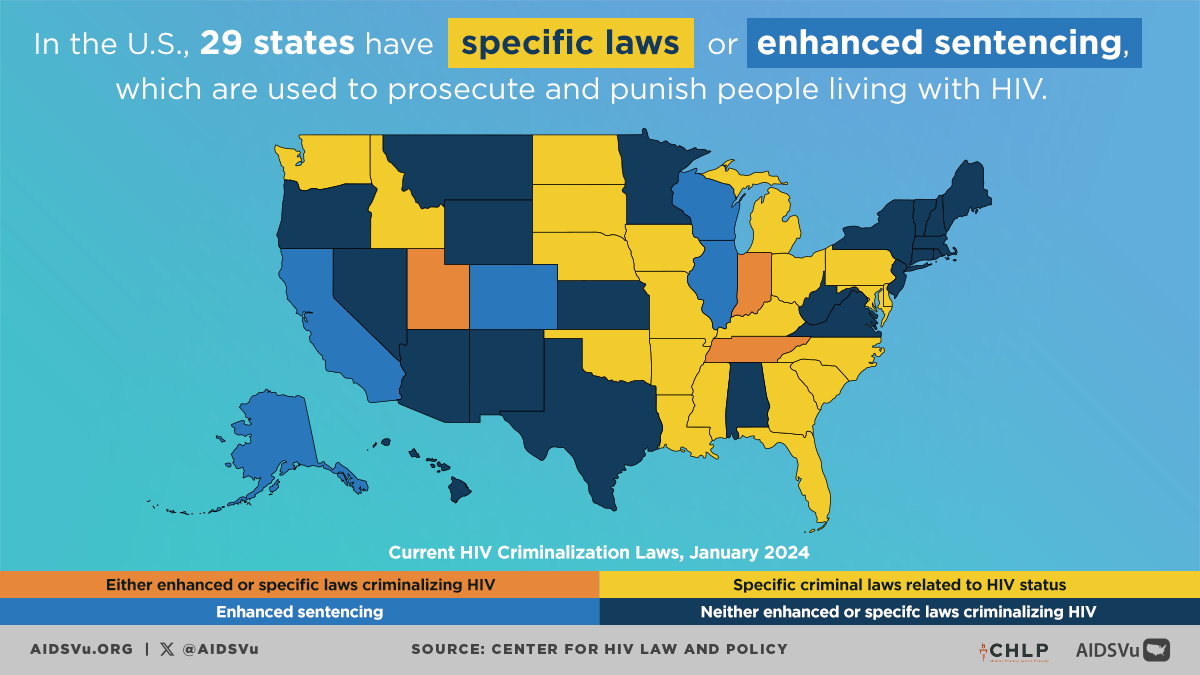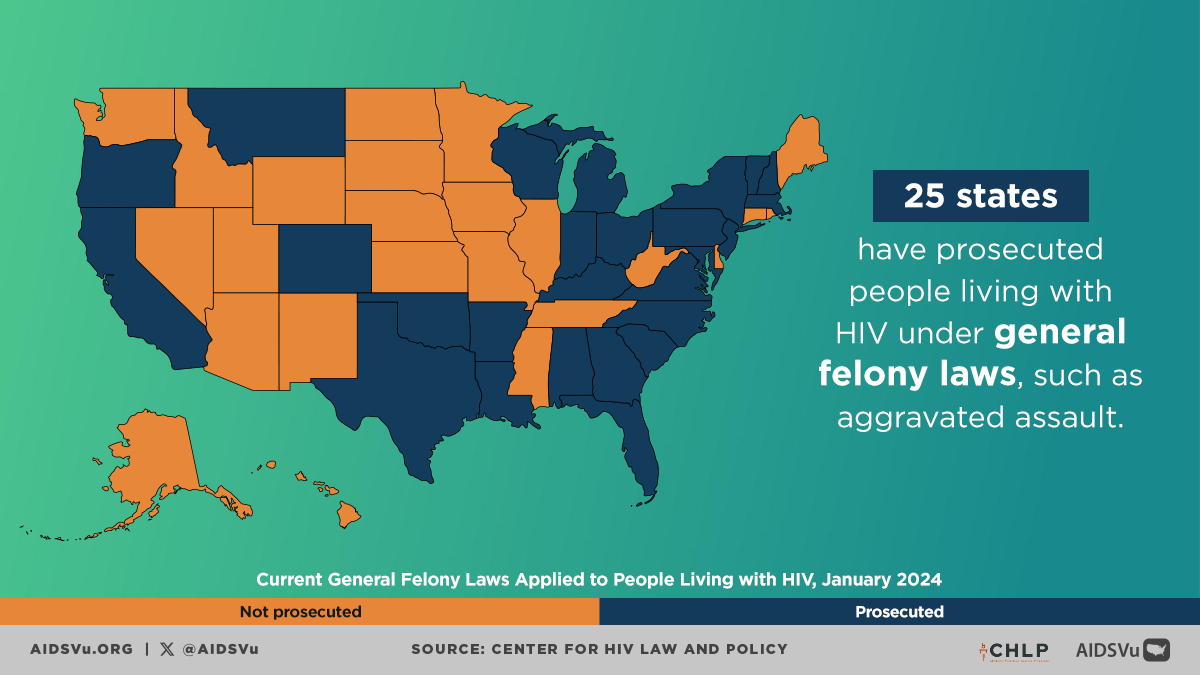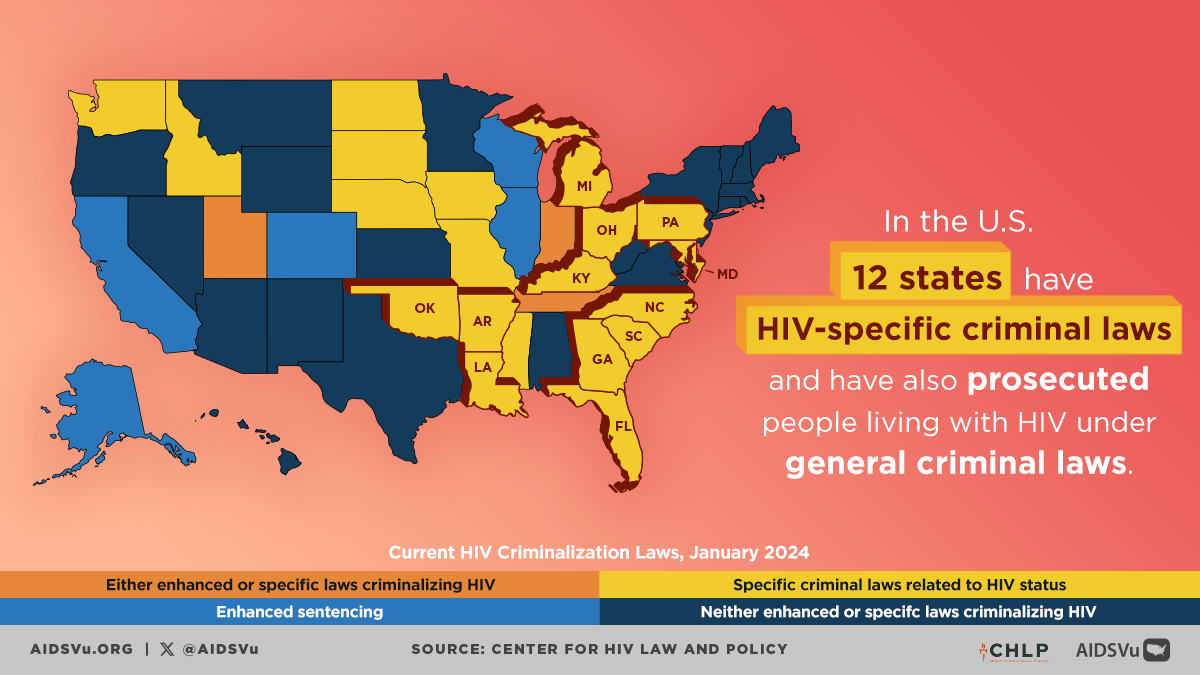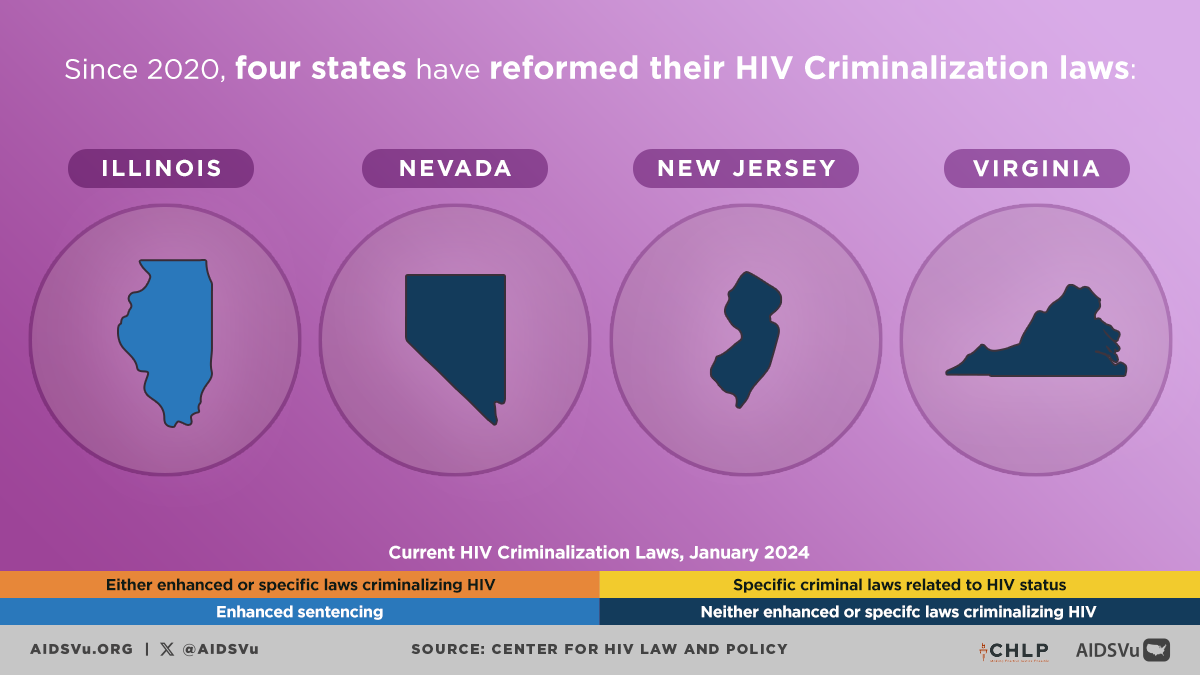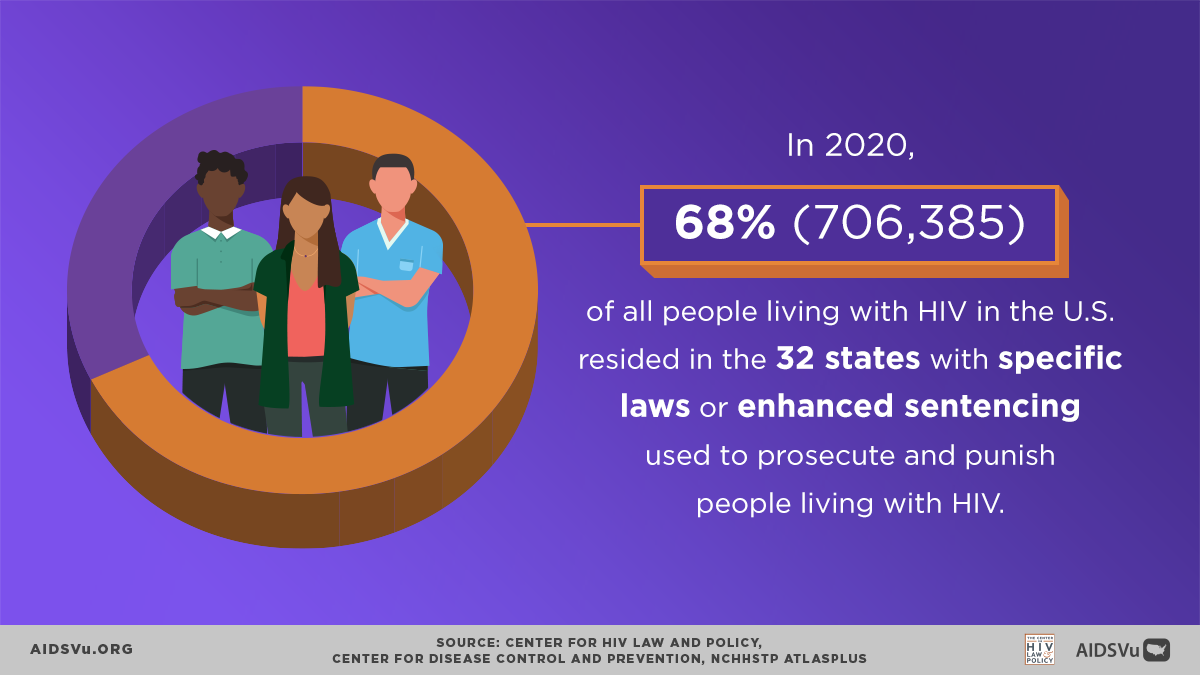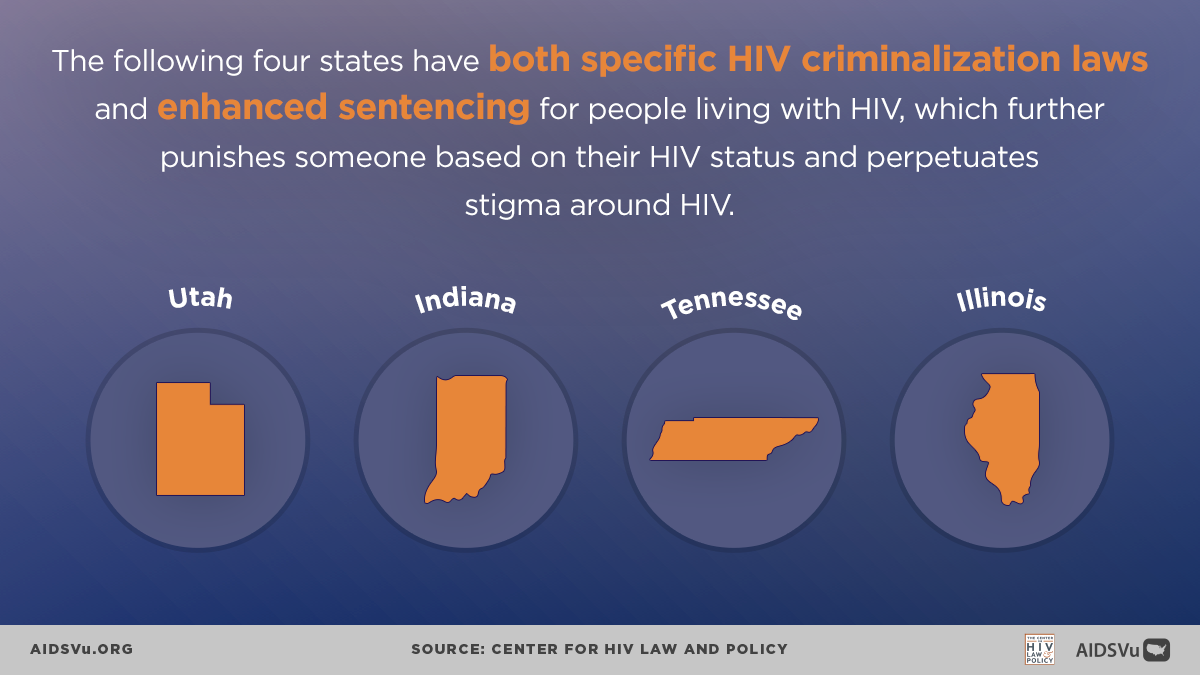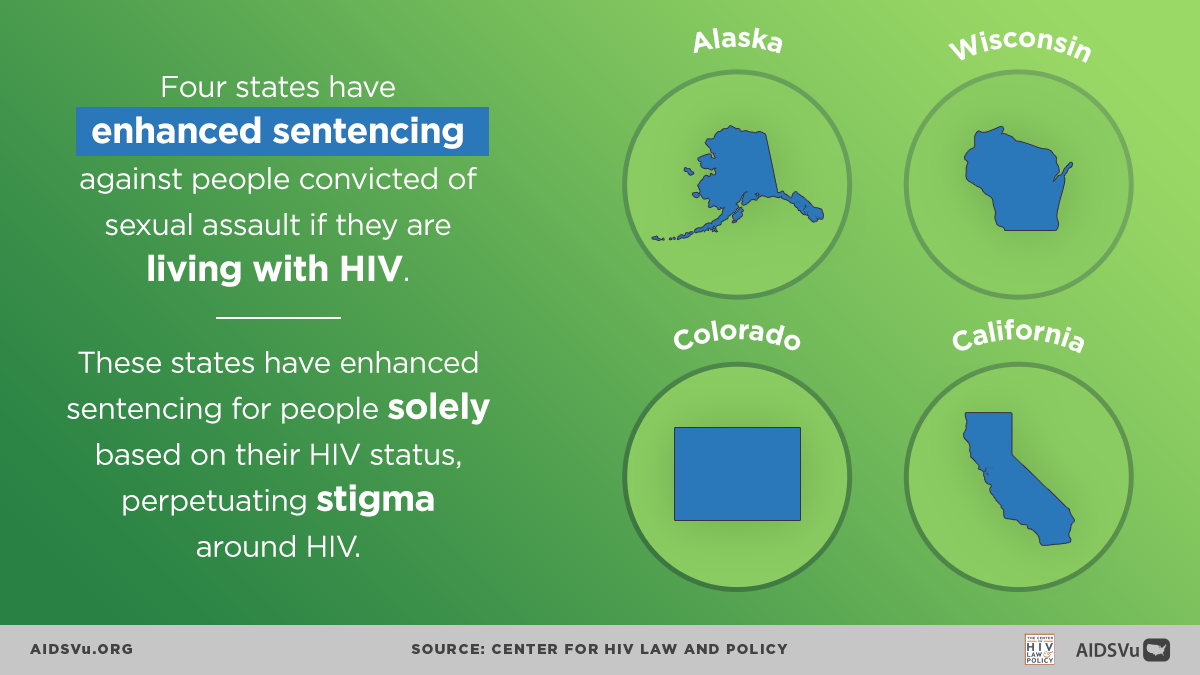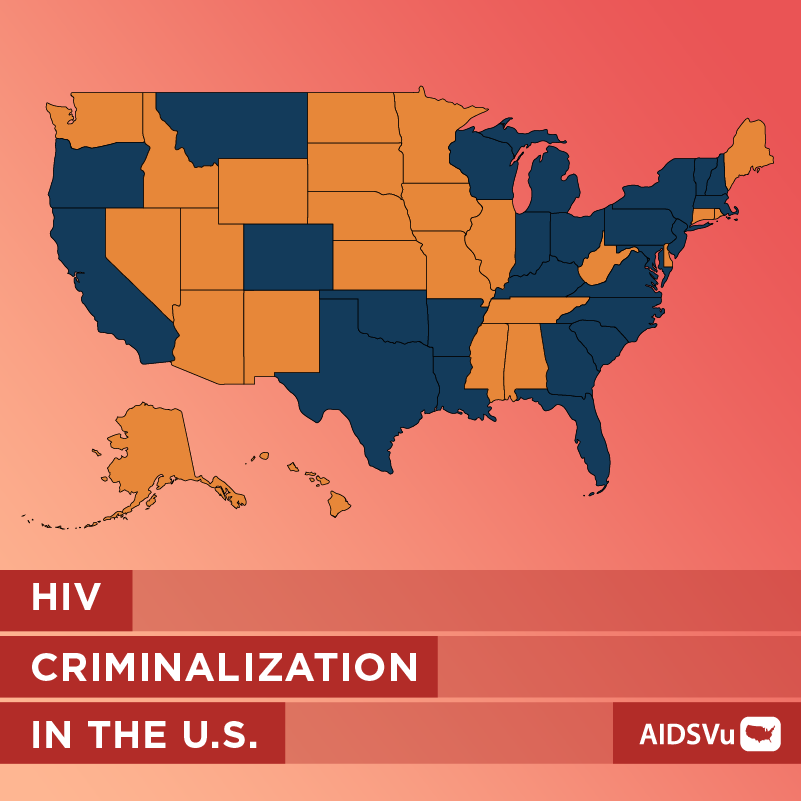A Legacy of Fear and Misunderstanding
The criminalization of HIV transmission and exposure represents one of the most troubling intersections of law, public health, and stigma in modern American history. Dating back to the early years of the HIV epidemic in the 1980s, states began enacting HIV-specific criminal laws driven by public fear, widespread misinformation about HIV transmission, and deeply rooted prejudices against the communities most affected by the virus.
These early laws emerged from a climate of panic rather than scientific understanding. Legislative records from states like Nevada reveal explicit bias and harmful perceptions of gay men as “disease vectors,” reflecting the homophobia and stigma that characterized much of the early response to HIV. Rather than being grounded in public health principles or epidemiological evidence, these statutes were crafted as tools of punishment and exclusion.
The original laws varied widely in their scope and severity, but most shared certain troubling characteristics. They established criminal penalties for failing to disclose HIV status to partners, for exposing others to HIV, and critically, none required proof that transmission had actually occurred. Many could be used to target people living with HIV (PLWH) regardless of their intent to harm or what protective measures they took to prevent passing HIV to their partner.
Perhaps most telling of the scientific ignorance underlying these laws were provisions criminalizing behaviors that pose no risk of HIV transmission, such as biting or spitting by people living with HIV. These provisions persist in many states today, despite decades of research confirming that HIV cannot be transmitted through saliva.
The Current Landscape: A Patchwork of Outdated Laws
In the United States, 32 states criminalize people living with HIV (PLHIV) and 28 states have harsh criminal penalty enhancements that elevate charges based on a person’s knowledge of their HIV status. As of December 2023, 37 states had a criminal law related to HIV or sexually transmitted disease status, according to the CDC. The variation in these numbers reflects the complex and evolving nature of how different jurisdictions classify and apply these laws.
After more than four decades of HIV research and extraordinary biomedical advancements—including pre-exposure prophylaxis (PrEP), highly effective antiretroviral therapy (ART), and the scientifically established principle that undetectable equals untransmittable (U=U)—these state laws are not only outdated but actively harmful. They fail to reflect current scientific knowledge and best practices for HIV prevention and treatment.
The disproportion in how HIV is treated compared to other sexually transmitted infections is particularly stark. HIV, now a fully manageable chronic condition for those with access to care, faces far more severe criminalization than other STIs, including some that may actually pose greater transmission risks in certain contexts.
Decriminalizing HIV in the U.S.
The Harsh Reality of Enhanced Sentencing
Many states impose enhanced sentencing for people living with HIV, creating a two-tiered justice system based solely on HIV status. These enhanced sentences can include:
- Extended prison terms that far exceed those for comparable offenses
- Increased fines and court costs
- Mandatory sex offender registration with lifelong consequences
- Severe collateral consequences affecting access to housing, employment, voting rights, and family custody
Among the states with HIV-specific criminalization laws, 25 have also prosecuted PLWH under general criminal laws such as aggravated assault, creating multiple pathways for discriminatory prosecution. This dual approach means that individuals can face both HIV-specific charges and enhanced penalties under general criminal statutes.
Perpetuating Harm: The Public Health Impact
Beyond the burden they place on individual lives, HIV criminalization laws actively undermine public health goals and exacerbate the very problems they claim to address. Research has consistently shown that these laws:
Discourage HIV testing: When testing positive for HIV can potentially expose someone to criminal liability, rational individuals may avoid testing altogether. This creates a dangerous cycle where people remain unaware of their status, cannot access treatment, and may unknowingly transmit the virus to others.
Increase stigma and discrimination: Criminalization reinforces the false narrative that people living with HIV are inherently dangerous, fueling discrimination in healthcare, employment, housing, and personal relationships.
Exacerbate health disparities: These laws disproportionately affect already marginalized communities—including communities of color, transgender women, sex workers, and people who use drugs—who face multiple intersecting forms of discrimination and structural barriers to healthcare.
Undermine prevention efforts: By creating an adversarial relationship between public health authorities and affected communities, criminalization laws make it harder to implement effective prevention programs, contact tracing, and partner notification services.
Discourage disclosure and honest communication: Rather than promoting the open communication about HIV status that these laws ostensibly seek to encourage, criminalization creates perverse incentives for secrecy and dishonesty.
Disproportionate Impact on Marginalized Communities
HIV criminalization laws disproportionately affect the same communities that have borne the greatest burden of the HIV epidemic itself. This is not coincidental—both the epidemic and the legal response to it are shaped by the same structural inequities and systemic discrimination.
Communities of color, particularly Black Americans, face both higher rates of HIV and greater likelihood of contact with the criminal justice system. The intersection of these factors means that HIV criminalization laws become another mechanism through which racial disparities in health and justice are perpetuated.
Transgender women, especially transgender women of color, experience extraordinarily high rates of HIV while also facing discrimination in healthcare, employment, and housing. For this population, HIV criminalization laws represent an additional layer of vulnerability and potential persecution.
Sex workers face unique risks under these laws, as their HIV status can be weaponized by law enforcement and used to justify enhanced penalties for other charges. The criminalization of sex work itself creates environments where HIV disclosure becomes even more dangerous.
People who use drugs may find their HIV status used to enhance drug-related charges or may avoid accessing harm reduction services out of fear that their status could be used against them in legal proceedings.
These disparate impacts mean that HIV criminalization laws function not as neutral public health measures but as tools that reinforce existing patterns of marginalization and exclusion.
The Complex Legal Landscape
The legal framework surrounding HIV criminalization is extraordinarily complex, with significant variation between states in what is criminalized, how laws are prosecuted, and what penalties apply. The Center for HIV Law and Policy serves as the preeminent resource for understanding this intricate legal landscape, providing detailed analysis of each state’s policies, legal precedents, and prosecutorial practices.
Some states focus on disclosure requirements, making it a crime to engage in certain activities without first informing partners of one’s HIV status. Others criminalize specific behaviors regardless of disclosure. Still others apply general criminal laws like assault or reckless endangerment to HIV-related cases, often with enhanced penalties.
The application of these laws is equally varied. Prosecutorial discretion means that similar cases may be handled very differently depending on the jurisdiction, the prosecutor, and the specific circumstances involved. This creates a legal environment where outcomes are unpredictable and often depend more on geography and prosecutorial philosophy than on the actual risk of transmission or intent to harm.
It’s important to acknowledge that there may be very rare cases where intentional transmission of HIV could warrant legal action. However, existing criminal laws already provide pathways for addressing such extreme cases. The redundant, HIV-specific laws that exist in most states go far beyond addressing intentional harm and instead criminalize a wide range of behaviors based solely on HIV status, regardless of intent, transmission risk, or actual harm.
Progress Toward Reform: A Growing Movement
Despite the challenges, there has been significant progress in reforming HIV criminalization laws in recent years. The movement for reform has been driven by a coalition of advocates, people living with HIV, public health professionals, legal experts, and policymakers who recognize that these laws are both unjust and counterproductive.
Since 2014, numerous states have instituted significant changes to their HIV criminalization laws, with momentum accelerating in recent years. Some notable reforms include:
Complete repeal of HIV-specific laws: States like Texas, New Jersey, and Illinois have eliminated their HIV-specific criminal statutes entirely, though challenges remain in implementation and enforcement.
Modernizing legal standards: Some states have updated their laws to require intent to transmit HIV, actual transmission, or have allowed defenses based on the use of prevention methods such as viral suppression, condom use, or partner PrEP use.
Eliminating disproportionate penalties: Several states have removed requirements for sex offender registration, eliminated enhanced sentences for sex workers living with HIV, and addressed other aspects of their laws that created disproportionate punishment.
Moving from criminal to public health approaches: Some jurisdictions have shifted HIV-related issues from criminal code to disease control regulations, treating HIV exposure as a public health rather than criminal matter.
The reform movement received significant support in January 2021 when CDC officials Dr. Jonathan Mermin and Dr. Demetre Daskalakis published a Dear Colleague Letter asserting that the time had come “to align HIV-specific criminal exposure laws with science and consider reforming, rescinding, and revising the application of relevant laws for the sake of people with HIV and for the public’s health.”
Recent Legislative Progress
The pace of reform has accelerated in recent years, with several states making significant changes to their laws:
2020-2024 Reforms: Since 2020, Nevada, Illinois, New Jersey, and Virginia have all made significant reforms or instituted an outright repeal to their HIV criminalization laws.
Ongoing Efforts: Reform efforts continue across the country, with advocacy organizations, legal groups, and affected communities working to modernize laws in the remaining states with outdated statutes.
Emerging Trends: Recent reforms have increasingly focused not just on repealing problematic laws but on ensuring that general criminal laws are not misapplied to HIV-related cases and that prosecutorial guidelines reflect current scientific understanding.
The success of these reform efforts demonstrates that change is possible and that there is growing recognition among policymakers that HIV criminalization laws are incompatible with effective public health approaches and basic principles of justice.
HIV Criminalization Data on AIDSVu
Recognizing the critical importance of this issue for understanding the HIV epidemic, AIDSVu has incorporated comprehensive data on HIV criminalization laws into its platform. The site features interactive state-level comparison maps that allow users to:
- Explore the current status of HIV criminalization laws across all U.S. states and territories
- Compare general criminal law applications to people living with HIV
- Analyze relationships between criminalization policies and HIV outcomes such as testing rates, new diagnoses, prevalence, PrEP uptake, and mortality
These maps, originally created in collaboration with the Center for HIV Law and Policy, can be layered with other HIV-related data to reveal patterns and correlations that inform advocacy, policy development, and public health interventions.
Interactive Mapping Features:
Moving Forward: The Path to Justice and Public Health
The fight against HIV criminalization is ultimately about more than changing laws—it’s about transforming how society understands and responds to HIV. Effective reform requires:
Legislative Action: Continued efforts to repeal or modernize outdated laws, with particular attention to ensuring that general criminal laws are not misapplied to HIV-related cases.
Prosecutorial Reform: Training and guidelines for prosecutors to ensure that charging decisions reflect current scientific understanding and proportionate responses to actual risk and harm.
Judicial Education: Programs to educate judges about HIV science, transmission risks, and the public health implications of criminalization.
Community Engagement: Meaningful involvement of people living with HIV and affected communities in all aspects of law reform efforts.
Public Education: Broader efforts to combat HIV stigma and misinformation that fuel support for criminalization.
Research and Evaluation: Ongoing study of the impacts of criminalization laws and reform efforts to build the evidence base for further change.
The ultimate goal is a legal environment that treats HIV like other manageable chronic conditions, that respects the rights and dignity of people living with HIV, and that supports rather than undermines public health goals. Achieving this vision will require sustained effort from advocates, policymakers, healthcare providers, legal professionals, and communities affected by HIV.
As we move forward, it’s crucial to remember that HIV criminalization laws are not inevitable or necessary. They represent choices—choices that can be changed. The progress made in recent years demonstrates that a different approach is not only possible but essential for creating a just and effective response to HIV.
5 Ways to Use AIDSVu
View local statistics
National-, state-, and city-level profiles including data on HIV criminalization.
Learn MoreExpert blogs
Stay up to date with the latest Q&As from experts on HIV criminalization and more.
Learn More
